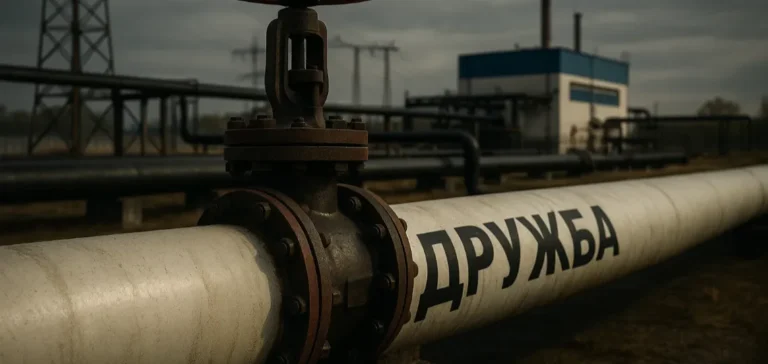The Hungarian government has formally requested assistance from the United States following renewed interruptions to its oil supply. According to Prime Minister Viktor Orban, these disruptions were caused by strikes targeting Russian energy infrastructure. The head of government stated that the U.S. president expressed support, although the exact nature of this assistance was not disclosed.
Hungary relies primarily on the Druzhba pipeline (meaning “friendship” in Russian), a network commissioned in the 1960s that connects Russia to Central Europe. While the European Union banned most Russian oil imports in 2022, this pipeline received a temporary exemption to allow landlocked countries such as Hungary and Slovakia time to secure alternatives.
Repeated Disruptions and Regional Tensions
In recent days, Hungary’s supply via Druzhba has been interrupted three times. The Unechsky district in Russia’s Bryansk region was hit by a Ukrainian strike, according to regional governor Aleksandr Bogomaz. Although the pipeline was not specifically mentioned, a major pumping station is located in that district.
In response, Hungary and Slovakia sent a joint letter to the European Commission. They called for action against what they described as repeated attacks on energy infrastructure. Hungarian Foreign Minister Peter Szijjarto labeled these incidents as a direct threat to energy security and criticized Brussels for its lack of response.
Divergent International Reactions
Responding to Hungary’s accusations, Ukrainian Deputy Foreign Minister Andriï Sybiha argued that responsibility for the disruptions lay with Moscow, stressing that Russia initiated the conflict. He urged Hungary to address its supply concerns to its Russian partners.
Hungarian oil company MOL stated that supply security remained ensured despite recent events. No major disruptions have been reported on Hungary’s domestic market so far.
Pressure on European Sanctions Policy
Hungarian and Slovak leaders have repeatedly questioned the effectiveness of European sanctions against Russia, arguing that such measures jeopardize their own energy security. Although a minority view within the European Union, this stance underscores ongoing concerns about regional dependence on Russian imports.






















